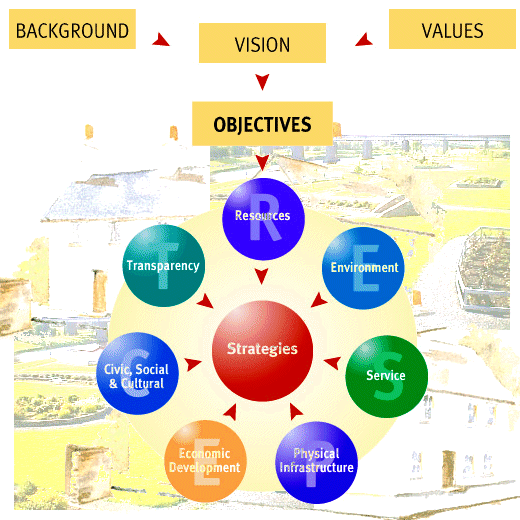Introduction to the new Local Government Reforms |
|
| Most of us have little personal contact with the
local Authority. We use the facilities provided and avoid
going down to ‘the council offices’ as much as
possible. Perhaps we contact our county councillor with
particular queries, but we often take services such as
domestic water supply, sewage and waste disposal for
granted. We rely on the council to plan and carry out
road construction, maintenance and public housing
projects. We enjoy the facilities in the libraries, the
public parks and playing fields without thinking about
their upkeep, not to mention the myriad of other services
provided through the local authority. Indeed, the services being provided by the County Council have changed dramatically over the last number of years. A lot of effort has been put into making the organisation more efficient, effective and 'user-friendly'. Considerable resources and time have been invested into such areas as the Arts, Enterprise and Community Development.
Many people rely heavily on the work of the Council. Over 1500 families rent houses directly from Kildare County Council and 2000 more live in council estates. Many of the Traveller Community are dependent on the county council to set up serviced halting sites, and those without homes wait anxiously on housing lists or in temporary hostels. Some communities have know the consequences of an unreliable water supply, others see the limits placed on expansion due to stretched sewage treatment facilities. These particular situations highlight the central role that the local authorities play in the current and future lives of our communities. This role is,however, set to change and expand over the coming months and years with the further implementation of the 1996 white paper on local Government Reform " A Programme For Change " These pages aim to highlight the potential of the wide ranging new reforms and to encourage people to find out more and to participate. |
|
